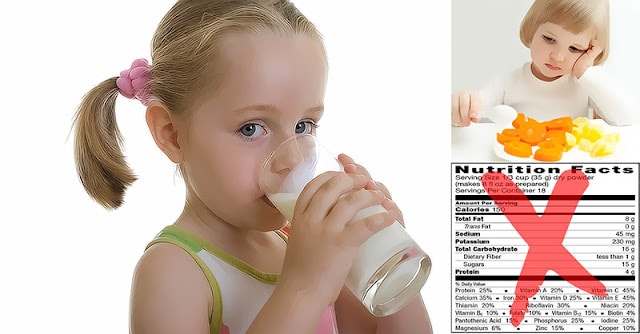The journal, Preventive Medicine, published a study which has looked into how U.S. regulations and policies can support clear and truthful labeling of toddler drinks, especially since U.S. and international pediatricians and health experts do not recommend them.
The Food and Drugs Administration (FDA) was urged by the scientists involved in the study to provide guidance or introduce regulations that will guarantee the proper labeling of toddler drinks. This will help the parents in providing their toddlers with healthier drinks.
An assistant professor of public health policy and management at NYU College of Global Public Health named Dr. Jennifer L. Pomeranz says that the study must build on previous research which showed that, manufacturer’s practices could negatively impact the diets of very young children.
Toddler drinks are being sold for young children (9 months to 3 years old) and are available as two types of products. First are the transition formulas which are for infants and toddlers nine to 24 months old. The other one is the toddler milk for children 12 to 36 months old. Toddler drinks are mostly made of powdered milk, vegetable oil, added sweeteners, corns syrup, and contain more sodium and less protein than cow’s milk.
Data found from previous studies have shown that common labeling and marketing practices for infant formula can make parents think that as compared to breastfeeding, toddler drinks are healthier. There are misleading labels that even insinuate that their products are necessary for “toddlers’ growth and mental performance.” Some are even offered as a “solution for picky eating.”
The scientists involved in the study visited stores that offered toddler drink packages. They collected and evaluated the product and looked into its nutritional labels and claims. They found out that toddler drinks are also called toddler formula, milk drink, toddler drink or toddler milk – and these confuse consumers.
Dr. Pomeranz, who is also the study’s lead author, explains that:
“All product labels contained claims about nutrition and health. A lot of the claims about expert recommendations can convince caregivers that these products are “necessary and healthy.” This is a cause for worry since health experts don’t actually recommend them and there is no evidence that they are nutritionally superior to healthy food and whole milk for toddlers.”
FDA was encouraged by the researchers to enforce regulations or provide guidance on toddler drink labeling. This may include statements that encourage parents to consult a physician before use, the proper health and nutrition claims as well as making a distinction between infant formula, transition formula, and toddler milk.
Dr. Pomeranz concluded that:
“The FDA and manufacturers should work together to end the inappropriate labeling of toddler drinks and ensure caregivers have reliable information to nutritiously feed their children.”
Healthy Food Options For Your Baby
Instead of milk drinks with misleading labels, you can give your toddlers some of these fruits and vegetables:
- Avocados – Avocados are full of healthy unsaturated fats that can boost brain development.
- Sweet potatoes – Sweet potatoes are rich in beta-carotene, vitamin C, and minerals like iron and copper.
- Bananas – A good source of potassium and contain vitamins B6 and C, calcium, and iron.
- Broccoli – This vegetable contains fiber, folate, and calcium.
- Prunes – Prunes are high in fiber.
- Blueberries – Packed with antioxidants, which are good for your baby’s “eyes, brain, and urinary tract.”









